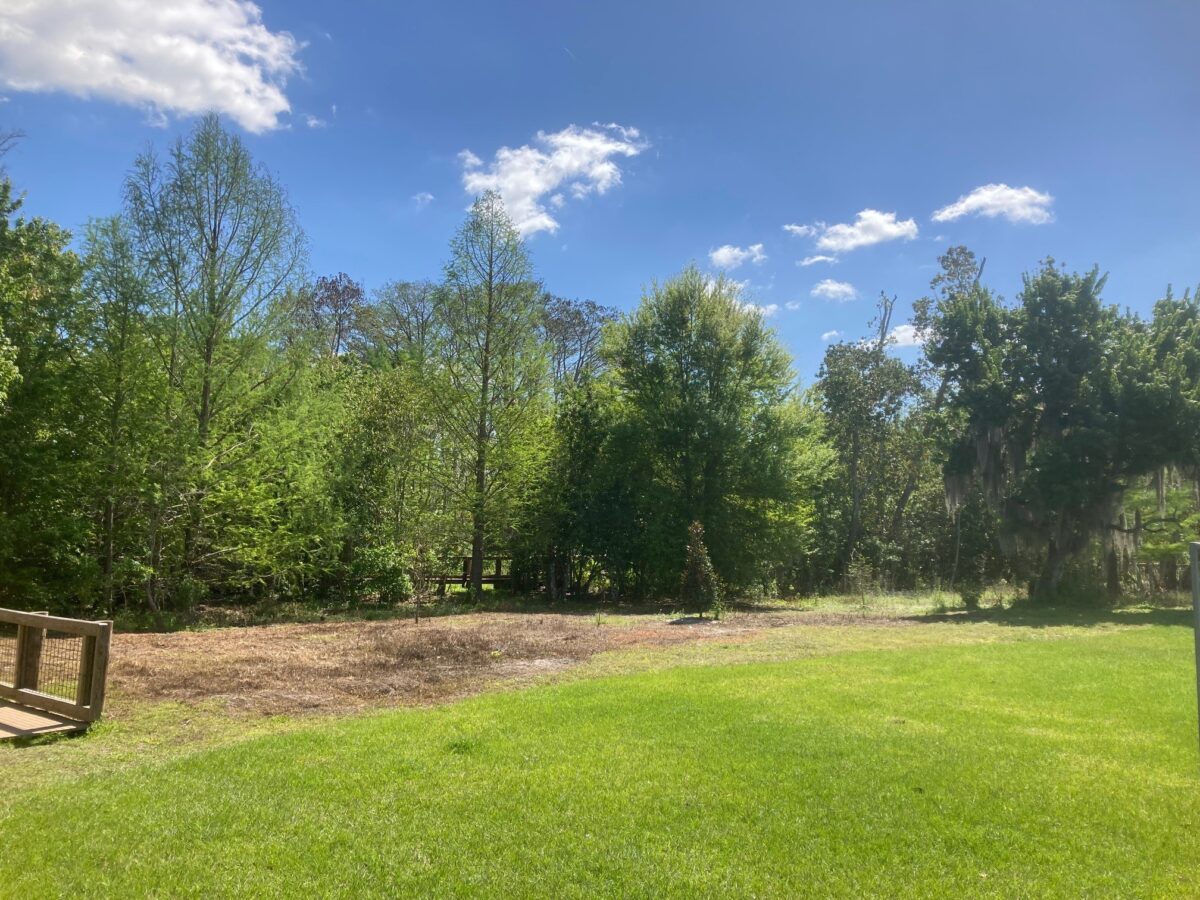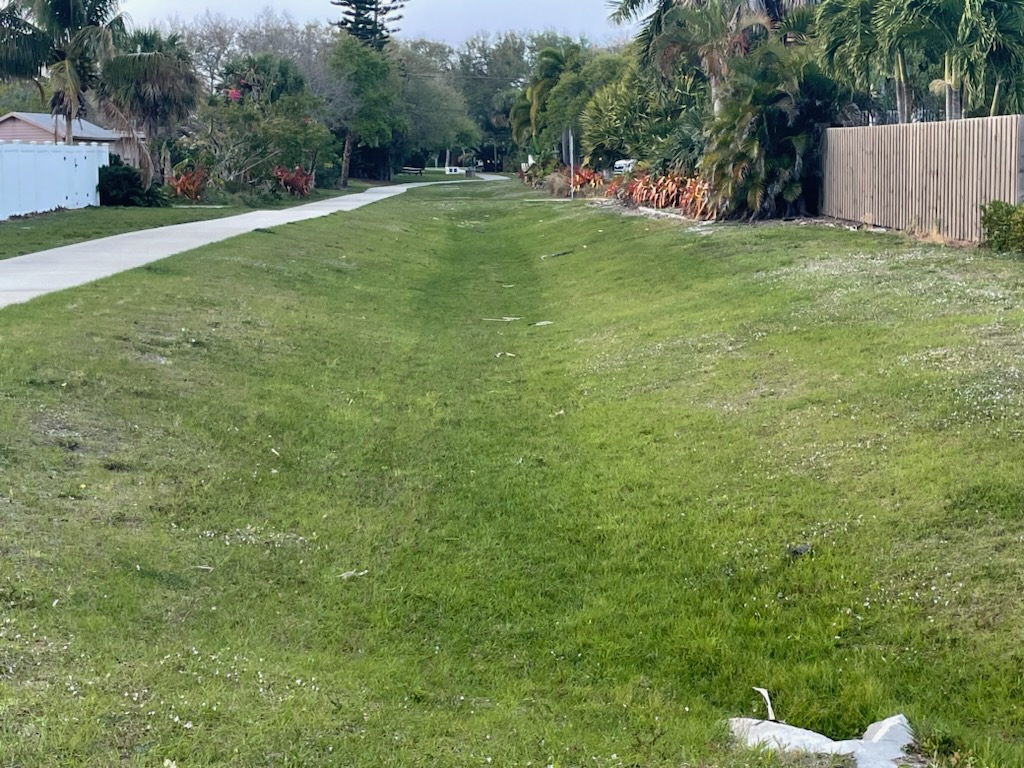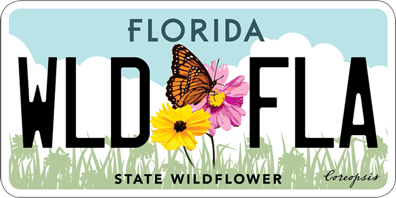Foundation awards 15 Viva Florida grants
The Florida Wildflower Foundation’s 2024 Viva Florida Landscape Demonstration Garden grant has been awarded to fifteen projects:
Marjorie A. Hoy Memorial Park at Orange Lake Overlook, McIntosh
Orange Lake Overlook, managed by Alachua Conservation Trust, offers beautiful views in a 157-acre preserve in Marion County. The site is a former pasture, receiving full sunlight. Planned species include Goldenrod (Solidago spp.), St. John’s wort (Hypericum spp.) and Firebush (Hamelia patens). Alachua Conservation Trust will install this demonstration garden in October, and hopes to expand the project in the future.
Bonnet Springs Park, Lakeland
This garden will be located within Bonnet Springs Park‘s Heritage Gardens, across from the Welcome Center. Guests can admire the garden from the Welcome Center balcony or from the trails surrounding it. Bonnet Springs Park receives 1.5 million visitors annually. The plant palate was selected to encourage diversity and ecological balance. Species include Elliott’s lovegrass (Eragrostis elliottii) to offer erosion control and Elliott’s aster (Symphyotrichum elliottii) to add vertical interest and attract pollinators
Secret Lake Park, Casselberry

This planting site will be located adjacent to the conservation area and sports field. A boardwalk will guide visitors through the conservation area to the demonstration garden. The majority of the plants installed will be perennial wildflowers that are prolific at reseeding, including Starry rosinweed (Silphium asteriscus) and Lanceleaf tickseed (Coreopsis lanceolata), and flowering shrubs such as Wild coffee (Psychotria nervosa) and American beautyberry (Callicarpa americana).
Green Mountain Scenic Byway, Minneola
Located at Green Mountain Scenic Overlook and Trailhead, this garden will collaborate with an Eagle Scout project to install a water feature, enhancing the native plant garden and attracting birds, mammals and insects. The site is adjacent to a geological sand dune near Sugarloaf Mountain, the highest point in peninsular Florida. The garden will feature species such as Florida greeneyes (Berlandiera subacaulis), Blazing star (Liatris spp.) and Coral honeysuckle (Lonicera sempervirens).
Tillie K Fowler Regional Park, Jacksonville
The City of Jacksonville will plant a demonstration garden along a short trail on the perimeter of the park. Their goal is to make the exterior of the nature center feel like an extension of the exhibits inside. With this planting, they hope to inspire visitors to plant more natives and remove invasive species from their yard. Plant species will include Butterfly milkweed (Asclepias tuberosa), Black-eyed susan (Rudbeckia hirta) and Wild pennyroyal (Piloblephis rigida).
Miccosukee Community Garden, Miami
Love the Everglades Movement, Inc. is creating a demonstration garden within the Miccosukee Tribe of Indians Reserved Land, next to a skate park and The Miccosukee Indian School. Love the Everglades Movement works to amplify indigenous voices in South Florida and beyond, striving for sustainable stewardship and opportunities to connect with the land. The planting will incorporate Wood sage (Teucrium canadense) and Sunshine mimosa (Mimosa strigillosa), as well as Sweetscent (Pluchea odorata), which is naturally occurring in the area.
Miami Beach Botanical Garden
Miami Beach Botanical Garden is a free public garden in the heart of Miami Beach. Their project is an aquatic demonstration garden that will enhance the park’s centerpiece —a 2,000 square foot freshwater pond. The garden will feature a variety of aquatic natives, including shoreline species such as Swamp milkweed (Asclepias incarnata), floating species like American white waterlily (Nymphaea odorata) and emergent species like Bulltongue arrowhead (Sagittaria lancifolia). The project will begin in 2025.
Albertus Cottage, Orange City
Village Improvement Association, a 130-year-old women’s club, and Orange City are collaborating to plant a demonstration garden at the historic 134 year-old Albertus Cottage. The cottage sits in the middle of a two-mile walking path that begins at a butterfly garden in Dickinson Park and ends at a natural wetland at Mills Lake. Plant species include Pineland heliotrope (Euploca polyphylla), Stokes aster (Stokesia laevis) and Teabush (Melochia tomentosa).
UF IFAS Palm Beach County Extension Office, West Palm Beach
This demonstration garden will be located at the IFAS Extension Office located in the Mounts Building, at the entrance to Mounts Botanical Garden. West Palm Beach Master Gardeners have decided to replace the landscaping outside of this building, as it is currently not Florida native. The new landscape will feature water-saving irrigation methods, and all native plants, including Marlberry (Ardisia escallonioides), Swamp twinflower (Dyschoriste humistrata) and Blue porterweed (Stachytarpheta jamaicensis).
Sanibel Island City Hall
The native plant garden in front of Sanibel’s City Hall was damaged by Hurricane Ian. Now in the aftermath, Sanibel is eager to restore and enhance what was there. The city is hoping to showcase Sanibel’s unique character, fostering a sense of place and promoting environmentally conscious living. The garden will feature Frostweed (Verbesina virginica), Muhlygrass (Muhlenbergia capillaris), Blue-eyed grass (Sisyrinchium angustifolium) and other native flowering species.
Sarasota UF IFAS Extension of Sustainability Office
The planting will be installed on the west side of the Extension Office, adjacent to other demonstration gardens. The theme of this native garden will be coastal, highlighting native, drought-tolerant and salt-tolerant plants. They are excited to include plant species such as False rosemary (Conradina canescens), Beach morning glory (Ipomoea imperati) and Sea lavender (Heliotropium gnaphalodes).
Indialantic by the Sea

Surfrider Foundation Space Coast Chapter will plant a demonstration garden in a bioswale near a pedestrian path. They are using this project to educate the public and to reduce pollution flowing into the Indian River Lagoon. Ocean Friendly Gardens is Surfrider’s sustainable landscaping and education program; their goal is to support resilient coasts and to protect clean water. Plant species include Walter’s viburnum (Viburnum obovatum), Bushy sea oxeye (Borrichia frutescens) and Dwarf saltbush (Baccharis dioca).
Walton County UF IFAS Extension Office, Santa Rosa
Walton County Master Gardeners are excited to install this native plant demonstration garden in late winter or early spring. They share their office with a county commissioner and Coastal Seniors of South Walton and expect to get many visitors. Plant species include Coralbean (Erythrina herbacea), Little bluestem (Schizachyrium scoparium) and Pinebarren goldenrod (Solidago fistulosa).
freeFall Theatre, St. Petersburg
St. Petersburg’s independent, nonprofit theatre, freeFall Theatre, will be updating their landscape with native plants. Their goal for this project are to convey sustainability, thoughtfulness, creativity and partnership, while also enhancing the landscape for pollinators. Some of the species included in their refresh include Tropical sage (Salvia coccinea), River sage (Salvia misella) and Carolina wild petunia (Ruellia caroliniensis).
Wekiva Springs State Park, Apopka
Wekiva Wilderness Trust is planning to revegetate a 1-acre site within Wekiwa Springs State Park with native plants for pollinators and other wildlife. The new demonstration garden will be located between two boardwalks that the park’s 500,000+ annual visitors use to move between the parking lot and nature center. With 600 volunteers at their disposal, most of them Master Gardeners, Wekiva Wilderness Trust is excited to embark on this ambitious project. Some intended species include False indigo (Amorpha fruticosa), Scarlet calamint (Calamintha coccinea) and Dune sunflower (Helianthus debilis).
Would you like to see more demonstration gardens across the state?
Consider making a donation today in support of our Viva Florida grant program.
You never know who you might inspire through a garden you helped fund.
All Viva Florida gardens must be in highly visible and publicly accessible areas with frequent pedestrian traffic. Plants grown as part of the project must be native to Florida. Projects must have strong educational components. Viva Florida educates the public about the importance of native plants in providing food and habitat for wildlife, as well as other ecological benefits. Applications for the 2025-26 Viva Florida grant period will be accepted between Jan. 1 and Mar. 15, 2025. If you are interested in applying, click here to review project guidelines.
The Florida Wildflower Foundation provides these grants with help from sales of the Florida State Wildflower license plate. Get yours today!
